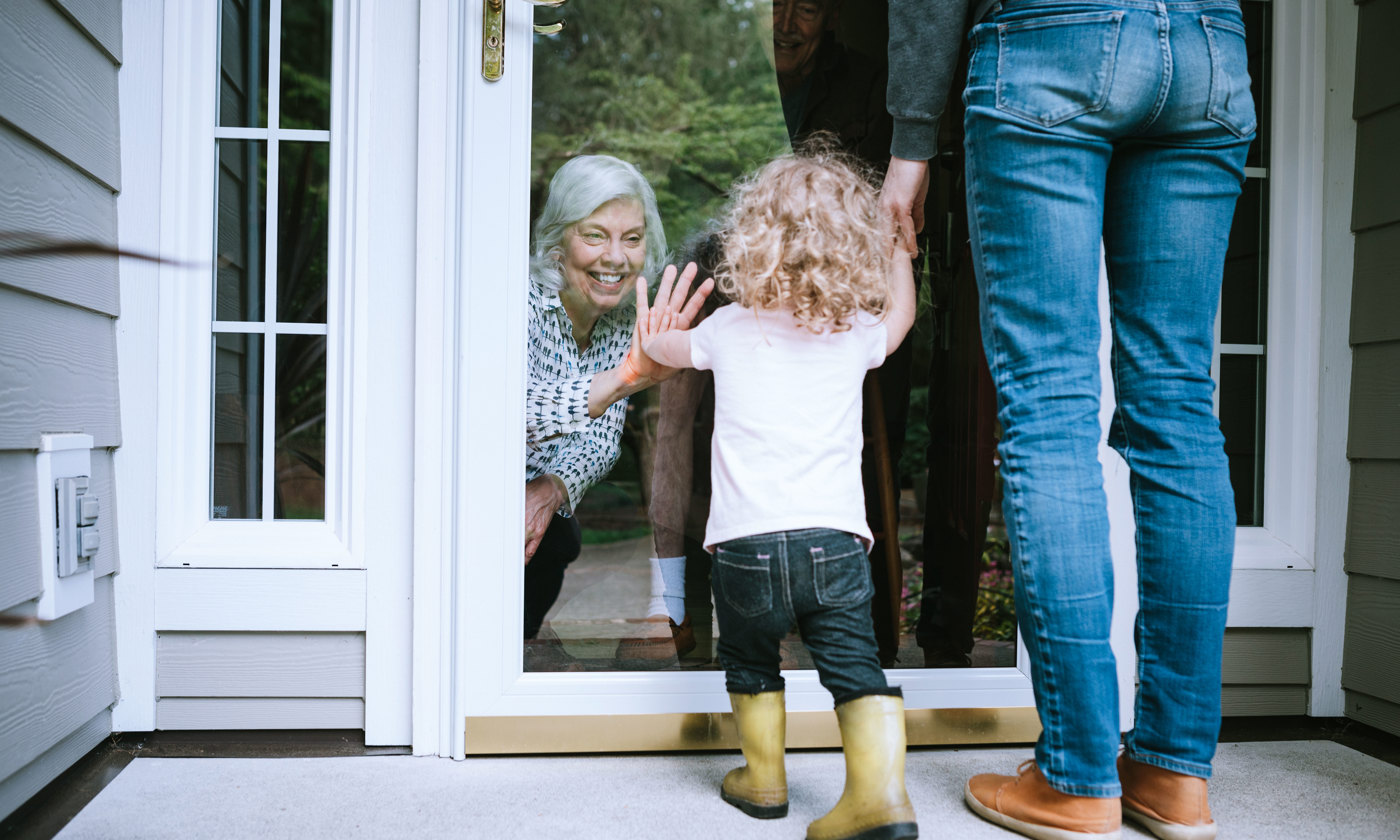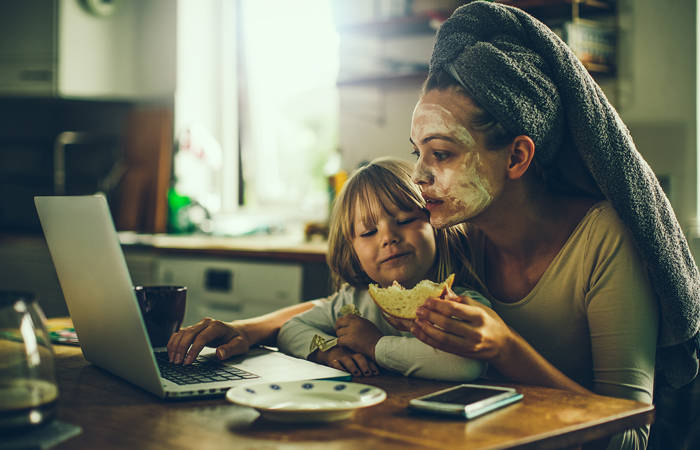Like what you see?
Sign up to receive more free parenting advice.
Thank you for subscribing to our newsletter!
Child Development

Credit: iStock.com/RyanJLane
Many parents have the occasional “flashback” moment: that time when, after acting in a certain way or saying a certain phrase, we think to ourselves: “I sound just like my mother or father”.
Clinical psychologist and Associate Professor from the University of Melbourne, Dr Sophie Havighurst says that’s not surprising.
“There is strong evidence that the experiences you had with emotions in your family of origin when you were young shape your automatic reactions and the way you feel about emotions as an adult,” she says.
Dr Havighurst is the co-author of a well-known parenting program called Tuning in to Kids. She says what happens in our childhood creates emotional triggers that affect how we react to those same emotions as adults and as parents.
“For example, if your experiences with anger, where that anger was scary, or you were punished, or alternatively that anger was acceptable, that would have fed into you a whole internal kind of experience of how you feel that anger as an adult,” Dr Havighurst says.
“That means that when you come to parenting your own children, your reactions have been primarily determined from your early experiences with emotions that will shape how you react when you have an angry child,” she says.
It’s the same whether the emotion is sadness, fear, jealousy or even excitement.
“Your early experiences and how people responded to you – and how they showed those emotions – shape the template you have about how you feel about those emotions. It also shapes how you then react to your own emotions and other people’s emotions,” she says.
Some of the really interesting research looking at intergenerational patterns of parenting shows that we often parent the same way one generation to the next. If we’ve developed an awareness of what our own experience was and how it has affected us then we have a greater capacity to try something different and do something new.Dr Sophie Havighurst
Stay up to date with the latest news and articles from First Five Years
Thank you for subscribing to our newsletter!
Automatic emotional reactions shape our responses as parents
Dr Havighurst says these automatic responses regularly play out in our own parenting and it can be passed onto the next generation.
“Some of the really interesting research looking at intergenerational patterns of parenting shows that we often parent the same way one generation to the next. If we’ve developed an awareness of what our own experience was and how it has affected us then we have a greater capacity to try something different and do something new,” she says.
Our early experiences set something up deep within us that is triggered when we are faced with the emotion as an adult – even if that emotion is coming from our child.
“It might be that we hate to show other people we’re sad because our own experience with sadness was our mum always went into her room when she was sad. Or, our parents said, ‘Oh, let’s cheer you up now. There’s nothing to get sad about’, If that was your experience as a child, and if you don’t feel comfortable about feeling sad or expressing sadness then you will be more likely to avoid it. Instead, you will keep sadness private and lock it away where it just keeps on bubbling up,” Dr Havighurst says.
Start by thinking about your own childhood
Given that our family has a huge effect on our emotional responses, the Tuning in to Kids program asks parents to reflect on their childhood experiences with emotions early in each program.
Dr Havighurst says it’s important for parents to also consider any cultural practices around emotions in the culture they grew up in. She says some cultures express a lot of emotions (both positive and negative), while others teach their community members to keep things bottled up inside. Regardless of the approach, the messages are passed on through the generations.
She suggests parents start by considering the culture they’ve grown up in and ask how emotions are responded to.
“Then you can start looking at it in your own family of origin. Ask yourself things like how specific emotions were responded to? So how was sadness responded to? How were fear or worry responded to? How was anger and how was jealousy?”.
Dr Havighurst believes this awareness is the first step to breaking our automatic responses to emotions, so we can begin to respond consciously.
“It’s this examination of your emotional responses and then development of new skills that give you a new way of parenting. Research has found in order to break intergenerational patterns of emotionally avoidant, dismissive or disapproving parenting, people needed to be aware of what their experience has been, understand what the effects have been on them and then develop new skills,” Dr Havighurst says.
How to turn your responses off automatic
Thanks to Dr Sophie Havighurst for the following tips.
- Find a way to create a process of reflection.
It can happen by writing it down. It can happen by talking to a friend. It can happen just reflecting yourself. Set a couple of questions out like: ‘What were your cultural experiences with these emotions? How did your mum or your dad or your caregiver respond to you when you had these emotions? What would they show about these emotions? What messages do you think were communicated to you as a child about these emotions?’
- Once you have considered your early influences, move on to considering how you handle key emotions as an adult.
Ask yourself: ‘How do I feel about emotions now as an adult? What are my automatic reactions when I have these emotions? What are my automatic reactions when my children have these emotions?’
- See if you begin to notice how the process influences your parenting.
When you go through that process of asking yourself those questions it leads to a beginning of that awareness. Then, the next time your child’s very angry, you notice: ‘Oh, God, I feel I just want to hit him’, or ‘I'm just so angry with him’, or ‘How dare he?’. Those are often what you’ve experienced as a child yourself.
- Instead, ‘Build in a Pause’.
Take ten big deep breaths, slowly drink a cold glass of water, or count slowly to ten in your head before you react and then consider if there is a different way you would like to respond to your child.







